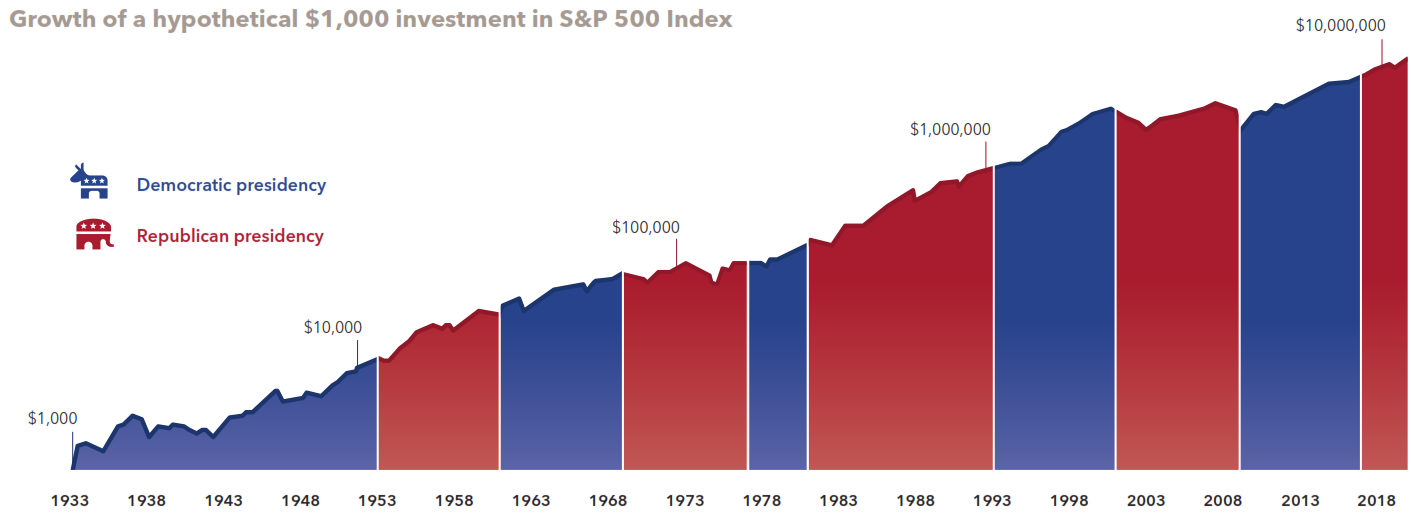
Investing with Confidence in an Election Year
Source: Capital Group’s 2020 Guide to Investing in an Election Year
One question I hear from clients all the time is: How will the election affect the markets?
But, when it comes to investing, do elections really matter all that much? This presidential election feels particularly divisive – and there is a lot hanging in the balance beside market performance.
Here are some things that we know, based on 85 years of investment data across 22 election cycles:
1. In the long-run, U.S. Stocks have trended up regardless of whether a Republican or Democrat won the presidency.
If you invested $1,000 into the S&P 500 when Franklin D. Roosevelt took office in 1933, that investment would be worth over $14 million today. During that time there have been an equal number of Democratic and Republican presidents.
2. Primary season tends to be volatile, but markets have bounced back strongly afterward. (Stocks have returned 10.2% in the 12 months following primaries, compared to 5.8% in similar periods in non-election years).
Markets don’t like uncertainty. Luckily, uncertainty regarding U.S. political elections never lasts long – you can pretty much count on it ending by the first Wednesday in November. Politically-driven stock volatility is generally fairly short-lived as well. During the last 20 election years, stocks have only had negative returns two times (2000 & 2008), and economists generally attribute both declines to reasons other than politics.
3. Investors often get nervous and move into cash during election years, but staying on the sidelines has rarely paid off. We believe that time in the market is more important than timing the market.
If you are nervous about the markets as we head toward the 2020 election, you’re not alone. History has shown that investors have poured into money market funds much more frequently leading up to elections. This suggests that investors want to minimize risk during election years and wait until after uncertainty has subsided to revisit riskier assets like stocks.
The image below shows that staying fully invested and making consistent contributions throughout an election cycle has outperformed sitting on the sidelines since 1932. We believe that overreacting to short-term volatility during election cycles can harm long-term investment returns.
It’s important to remember that controversy and uncertainty surround every election, not just this one. We know that the current political and economic challenges are unprecedented – but there have been other unprecedented events in the past. And the feelings that come with these events are not unprecedented, no matter how much it may feel like it. On November 3rd, the nation will make its choice, and whatever that choice may be, the uncertainty will be behind us. By maintaining a long-term focus, investors can be well-positioned for the future regardless of the election outcome.
There can be no assurance that the content made reference to directly or indirectly in this blog post will be suitable for your individual situation, or prove successful. Due to various factors, including changing conditions and/or applicable laws, the content is only reflective of current opinions or positions and is subject to change at any time and without notice. Moreover, you should not assume that any information contained in this blog post serves as the receipt of, or as a substitute for, personalized investment advice from Affiance Financial. Please remember to contact Affiance Financial if there are any changes in your personal/financial situation or investment objectives.



